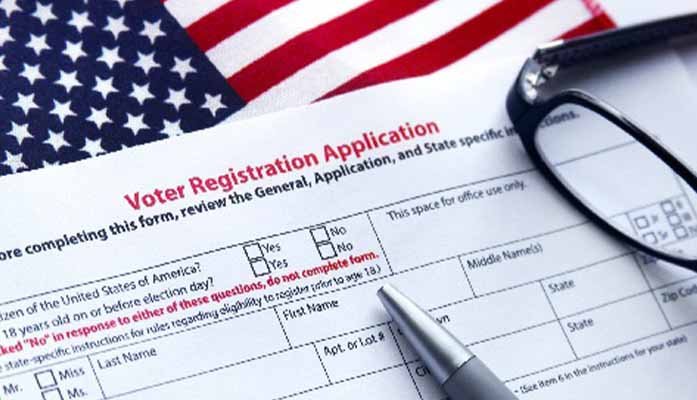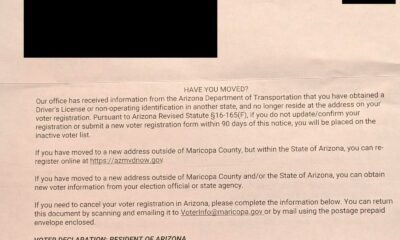Abe Hamadeh
Arizona Voters Urged to Verify Registration After Recent DMV Visits

By Staff Reporter |
Concerns are surfacing over potential voter disenfranchisement in Arizona due to the Motor Vehicles Division (MVD) making unauthorized changes to voters’ registration addresses. Reports indicate that this issue impacted thousands of voters during the 2022 midterm elections.
The alarm was raised after legal counsel for GOP congressional candidate Abraham Hamadeh, Jen Wright, revealed findings from earlier this year that highlighted the MVD’s unilateral modifications of voter registration for many individuals. This discovery has prompted calls for immediate checks on voter registration statuses.
In a recent tweet, Wright urged Arizonans to verify their registration, stating, “In @AbrahamHamadeh’s case, we found THOUSANDS of voters’ registration address was moved based on ANY interaction with MVD.”
State Senator Wendy Rogers has also endorsed these claims, noting that a family member experienced a similar issue with their voter registration.
The situation gained further attention through the court case Hamadeh v. Mayes, decided by the Arizona Court of Appeals in April. During this case, Wright’s team discovered that some voters had multiple properties and found themselves improperly registered in counties disconnected from their primary residence.
Wright detailed that many of these voters had no knowledge of the changes made to their registrations, which were altered due to updates in the statewide computer system. This procedural oversight raises significant concerns regarding voters’ rights and due process. Wright estimates that over 1,100 provisional voters may have been incorrectly disenfranchised.
The MVD’s changes, initiated in April 2020, affected these voters’ ability to cast their ballots. The court ruled that their votes could not be counted if their registration did not match the precinct where they intended to vote—despite the changes being made without their consent.
“Arizona law simply does not authorize opening the envelopes and counting those ballots,” stated the court, emphasizing the implications of MVD errors on voter eligibility.
Issues surrounding MVD processes have also been highlighted in a recent ruling by the Arizona Supreme Court. The court determined that nearly 100,000 voters affected by an MVD coding error were indeed eligible to vote, despite objections from Maricopa County Recorder Stephen Richer. Chief Justice Ann Scott Timmer stated that the responsibility lay with the state, not the affected voters, indicating a systemic failure in confirming voter registration details.
As the 2024 General Election approaches, the implications of these findings present a critical challenge to the integrity of the electoral process in Arizona. Ensuring that voter registration reflects accurate information is more urgent than ever.
















